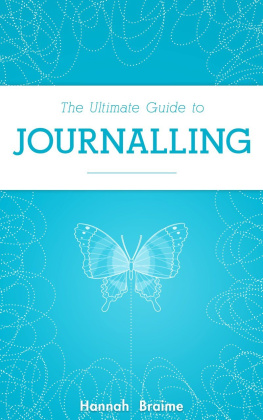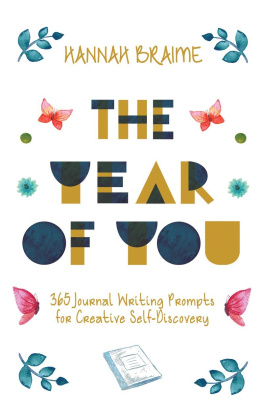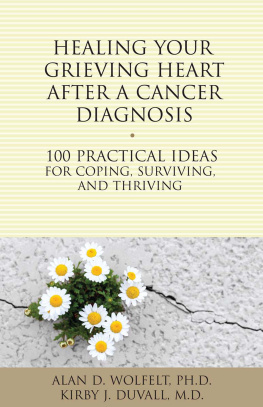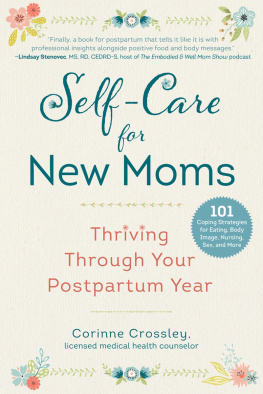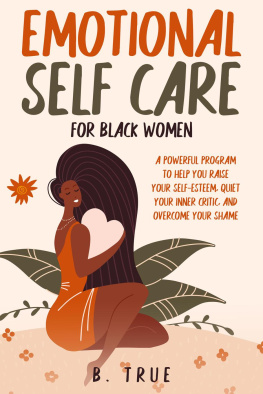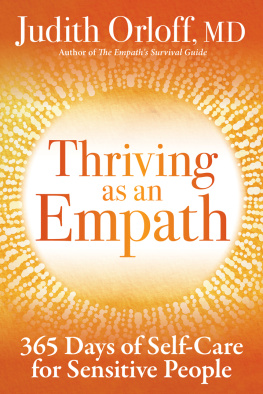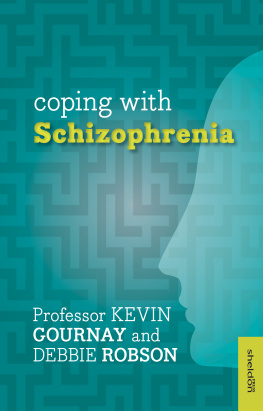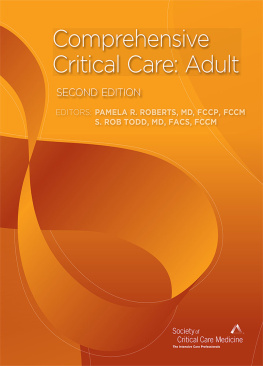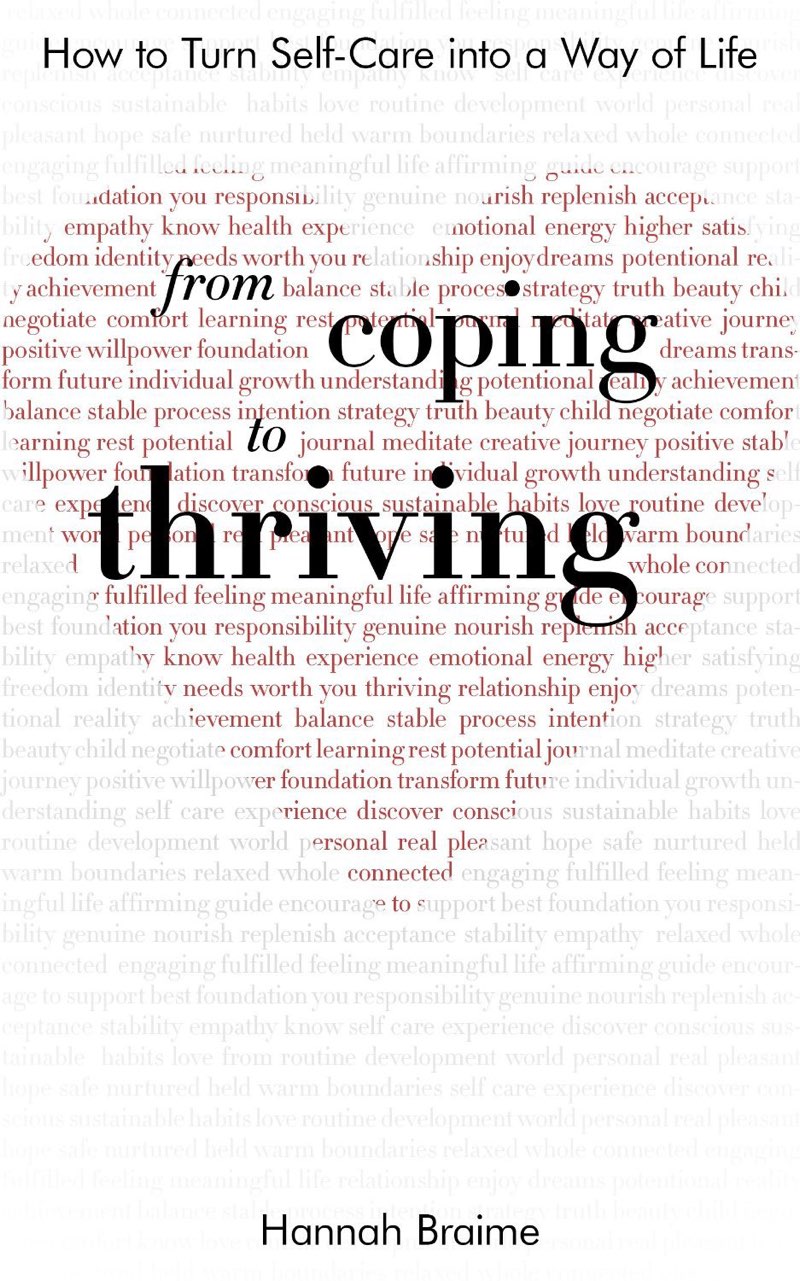All rights reserved. This book or any portion thereof may not be reproduced or used in any manner whatsoever without the express written permission of the publisher except for the use of brief quotations in a book review .
Introduction
W elcome to From Coping to Thriving. Thank you for purchasing this book, and congratulations on investing in your relationship with yourself. My intention is that this book will provide you with a comprehensive introduction to self-care. In the following pages, youll find plenty of tips and suggestions that you can use to integrate self-care into your life in a way that best meets your needs .
This is a how-to book, and at the same time, its much more than that. Youll find a variety of self-care practices you can put to use, as well as the key ingredients that will help you make self-care into a way of life, rather than just a routine .
Self-care is crucial to our experience of our day-to-day lives and to other peoples experiences of us. In the first part of this book, well explore why self-care is so important, examine the difference between long-term and short-term self-care, and discover different methods with which you can experiment for creating sustainable habits. Well also discuss how to deal with the dreaded resistance (which, by the way, is very common; most of us deal with this on a daily basis ).
Well cover these foundations first, because this book is about the whole self-care package .
When I began consciously addressing my own self-care, I launched straight into scheming and whipped up a detailed and intensive self-care routine without having a clear understanding of why it was so important (except that many people in the personal development world say its a good idea). I quickly discovered that its hard to figure out what works best for us without knowing why were engaging in self-care in the first place and what needs we want to address .
If we dont know what we need from our self-care, we cannot meet those needs. Instead, we end up fumbling around, engaging in various activities that might feel very pleasant, but dont quite hit the spot. Alternatively, we start engaging in activities that meet some of our needs but sacrifice others. We might also confuse self-care with pampering, end up feeling unfulfilled, and decide that this whole self-care malarkey is a load of woo-woo nonsense anyway .
As well as knowing the why behind our self-care and how we can best meet our needs, we need to get to know ourselves in order to make self-care a way of life. We need to be conscious of whats going to get in our way, times when we will most need self-care, which activities fill us to the brim, and which activities are more draining than nurturing. We need to know what our resistance tells us, and how to work with ourselves to build a sustainable self-care practice .
This book will address all the above and more .
You might be approaching this book from one of the following perspectives: Perhaps you already have a self-care routine but want to delve deeper and find out how to make your self-care even more satisfying, meaningful, and life affirming than it already is. Perhaps youre slightly wary of the whole idea of self-care (I know I certainly was), but you also have a sense that something needs to give. Youre tired of feeling stressed, stretched, foggy, and disconnected. Or maybe you like the sound of self-care, but dont know where to start; you cant afford to splash a ton of cash on spa days, and you dont have much time to spend on yourself .
Wherever youre coming from, this book will act as a guide, supporting you in creating the self-care practice that is right for you. Over the following pages, well talk about how you can build a toolkit of nourishing self-care activities that will support you, encourage you, and provide you with a solid internal foundation so you can meet the world as the best version of yourself .
Lets get to it .
P.S. Would you like a free video class on self-kindness to kickstart your journey? Simply go to http://selfkindness.becomingwhoyouare.net and enter your email to access to the class. When you register, youll also get more free workbooks, video classes and more tools for cultivating courage, compassion, and creativity in the Becoming Who You Are Library (I will never, ever share your email and you are free to unsubscribe at any time ).
One
Dont Just Survive, Live
To be yourself in a world that is constantly trying to make you something else is the greatest accomplishment .
Ralph Waldo Emerson
H ow can I:
Stop watching so much TV ?
Cut down my drinking ?
Stop spending so much money ?
Stop smoking ?
Get fitter ?
Eat more healthily ?
Experience a richer social life ?
Get enough sleep ?
Reduce my busyness ?
Improve my relationships ?
This book will answer all of those questions, and more. By the time you finish reading, youll have the ideas and resources you need to switch the coping strategies above for behaviors that will help you thrive .
Before we begin, however, lets start with another question :
What does self-care mean to you ?
Its a question I have struggled with for many years, only recently realizing that the answer is hard to define in strong, tangible terms. The goalposts move according to how Im feeling, whats happening in my life, and what needs I want to meet at the time .
My favorite definition of self-care comes from Pauline Salvucci, author of Self-Care Now! (Salvucci, 2001.) She defines self-care as: the right and responsibility to take care of your physical, emotional, and spiritual well- being .
I selected this definition because it includes several key facts about self- care :
Self-care involves our physical, emotional, and spiritual needs. As I mentioned briefly in the introduction, self-care is less about going out and doing things that fall under the category of pampering, and more about consciously taking steps to meet our needs in these three areas .
Self-care is our right. Another way of phrasing this is: we all deserve self-careeven if it doesnt feel that way sometimes. If you experience internal debate around whether or not you deserve self-care, Ill talk more about this in a later chapter, Resistance .
Self-care is our responsibility. Yes, that means that no one is going to take care of usits down to us and us alone. Although its not always conscious, many of us yearn for someone to come along and take care of us, to assume a nurturing parent role, and to meet our unmet needs. While were waiting for that unspecified (and nonexistent) person to come along, were neglecting our needs. Taking responsibility for our own self-care allows us to enter into mutually beneficial relationships to meet our needs, rather than being dependent on someone else. Like the question around deserving self-care, Ill talk more about the white knight fallacy in Resistance too .
The secret ingredient to real, genuine self-care is very simple, yet many people miss its power .


